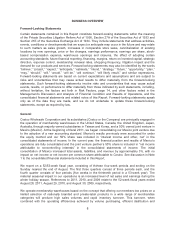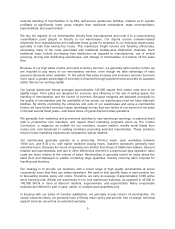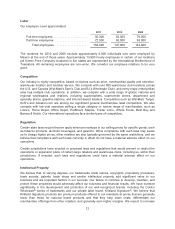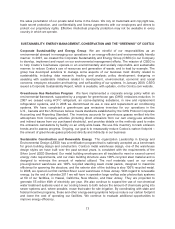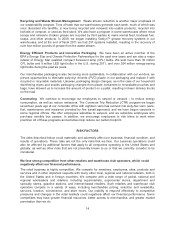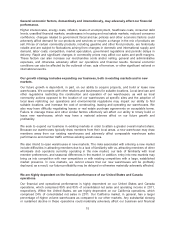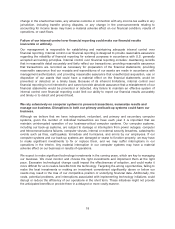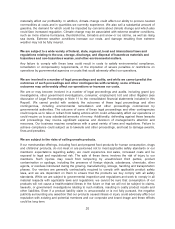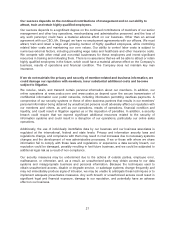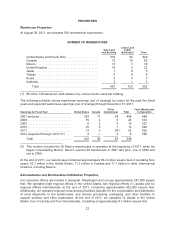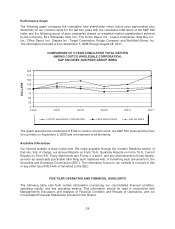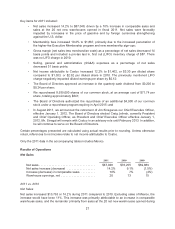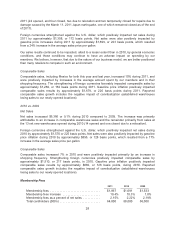Costco 2011 Annual Report Download - page 20
Download and view the complete annual report
Please find page 20 of the 2011 Costco annual report below. You can navigate through the pages in the report by either clicking on the pages listed below, or by using the keyword search tool below to find specific information within the annual report.change in the enacted tax rates, any adverse outcome in connection with any income tax audits in any
jurisdiction, including transfer pricing disputes, or any change in the pronouncements relating to
accounting for income taxes may have a material adverse affect on our financial condition, results of
operations, or cash flows.
Failure of our internal control over financial reporting could make our financial results
inaccurate or untimely.
Our management is responsible for establishing and maintaining adequate internal control over
financial reporting. Internal control over financial reporting is designed to provide reasonable assurance
regarding the reliability of financial reporting for external purposes in accordance with U.S. generally
accepted accounting principles. Internal control over financial reporting includes: maintaining records
that in reasonable detail accurately and fairly reflect our transactions; providing reasonable assurance
that transactions are recorded as necessary for preparation of the financial statements; providing
reasonable assurance that our receipts and expenditures of our assets are made in accordance with
management authorization; and providing reasonable assurance that unauthorized acquisition, use or
disposition of our assets that could have a material effect on the financial statements would be
prevented or detected on a timely basis. Because of its inherent limitations, internal control over
financial reporting is not intended to and cannot provide absolute assurance that a misstatement of our
financial statements would be prevented or detected. Any failure to maintain an effective system of
internal control over financial reporting could limit our ability to report our financial results accurately
and timely or to detect and prevent fraud.
We rely extensively on computer systems to process transactions, summarize results and
manage our business. Disruptions in both our primary and back-up systems could harm our
business.
Although we believe that we have independent, redundant, and primary and secondary computer
systems, given the number of individual transactions we have each year it is important that we
maintain uninterrupted operation of our business-critical computer systems. Our computer systems,
including our back-up systems, are subject to damage or interruption from power outages, computer
and telecommunications failures, computer viruses, internal or external security breaches, catastrophic
events such as fires, earthquakes, tornadoes and hurricanes, and errors by our employees. If our
computer systems and our back-up systems are damaged or cease to function properly, we may have
to make significant investments to fix or replace them, and we may suffer interruptions in our
operations in the interim. Any material interruption in our computer systems may have a material
adverse effect on our business or results of operations.
We expect to make significant technology investments in the coming years, which are key to managing
our business. We must monitor and choose the right investments and implement them at the right
pace. Excessive technological change could impact the effectiveness of adoption, and could make it
more difficult for us to realize benefits from the technology. Targeting the wrong opportunities, failing to
make the best investments or making an investment commitment significantly above or below our
needs may result in the loss of our competitive position or underlying financial data. Additionally, the
costs, potential problems, and interruptions associated with implementing technology initiatives could
disrupt or reduce the efficiency of our operations in the short term. These initiatives might not provide
the anticipated benefits or provide them in a delayed or more costly manner.
18


